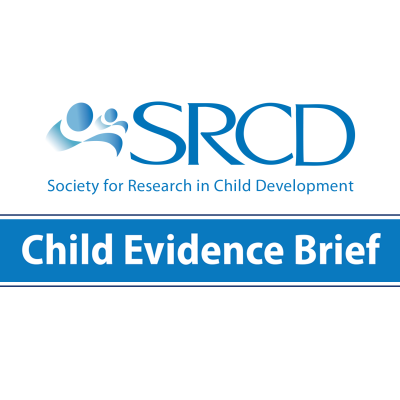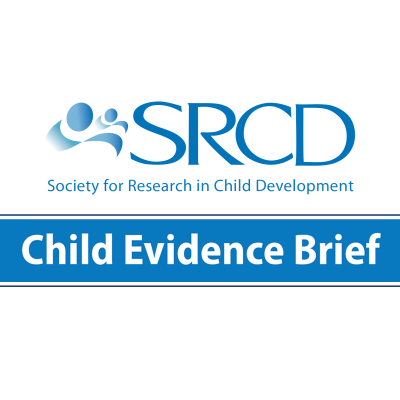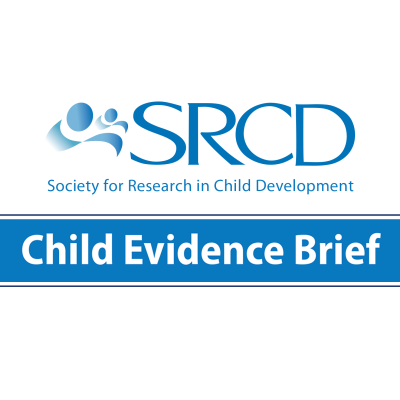Raising Healthy Children: Helping Families Support Their Children’s Development
A section in the January/February 2011 special issue of Child Development on Raising Healthy Children features articles that highlight ways parents can help their children’s development through more positive patterns of everyday interactions. The research shows that everyday interactions matter to children’s development, and that interventions can strengthen parents’ interactions with their children, a finding that holds across families with children of different ages, families of different cultural backgrounds, and those facing specific challenges.
What Does The Research Tell Us?
Routine interactions between parents and children can support healthy development. In a recent study of children with persistent asthma (5-12yrs), when family members were more engaged with each other and demonstrated an interest in daily events during mealtime, child asthma symptoms were less likely to be severe and adherence to the medical regimen was greater. When mealtimes were characterized by more distractions (e.g., answering the phone), children’s asthma symptoms were more pronounced.4 Interactions with parents can help children understand and respond to influences outside the family. For example, educational television addressed to very young children can miss the mark without active co-viewing and discussion with parents. Without such help, children from birth to 3yrs may not connect the on-screen images with the real world, and children from 3-6yrs may dismiss content as unreliable. TV that is on in the background, unlike co-viewing with discussion, diminishes both the quality and quantity of parent-child interaction.7 Another study of middle school children and their parents found that when parents more strongly supported nonviolent solutions to conflict and were more actively involved in and monitored their children’s daily lives, the children engaged in less physical aggression, whereas greater parental support for fighting was associated with more physical aggression. Greater support for nonviolent methods and parental involvement also attenuated negative external influences on aggression, such as delinquent peer associations, though patterns differed for boys and girls.3
Parents’ mental health matters to children’s development. A study in the special issue confirmed previous research in showing that children (ages 7-17) of depressed parents had higher levels of depressive symptoms and lower functioning across multiple domains. However, in addition, changes in parents’ depressive symptoms were found to predict changes in children’s symptoms. Decreases in parents’ depressive symptoms were associated with improvement in parental support and acceptance, and with decreases in children’s symptoms.5
Interventions can enhance effective parenting practices among diverse families. Parenting interventions that are not culturally informed may not be as effective in engaging ethnic minority families. ParentCorps was designed to promote effective parenting practices among ethnically diverse families with pre-kindergarten children from disadvantaged, urban communities. Parent groups led by mental health professionals and co-facilitated by school staff focused on specific parenting issues, and concurrent groups for children had related content. A randomized control trial found that the intervention improved parenting practices and reduced teacher ratings of child behavior problems. Effects were similar for Black and Latino families.2
Interventions that also connect families to community resources may provide additional needed supports for multi-risk families. Child FIRST is a rigorously-evaluated intervention that aimed to support multi-risk families with very young children (6 months-3 years). Through weekly home visits, a clinical team worked with each family to develop a plan for integrated supports and facilitated family engagement in community services. A parent-child psychotherapeutic and psychoeducational approach helped parents reflect on their own and their children’s motivations, feelings, and behaviors, with a goal of facilitating positive interactions. Child FIRST was effective at increasing family access to a range of community-based services, had positive effects on child language and behavior, and reduced parenting stress, mental health symptoms and suspected child abuse and neglect. Families in Child First were less likely to be involved with Child Protective Services 3 years after enrollment.6
Increased parental involvement can diminish young adolescents’ antisocial behavior and substance use. The structure of middle schools poses challenges by decreasing parent-teacher communication and increasing the range of peer influences. In early adolescence, decreases in parental monitoring and increases in unsupervised time can also pose challenges. The EcoFIT intervention aimed to strengthen parental involvement with 11-13 year olds in economically and ethnically diverse populations through an intervention carried out in public middle schools. All families had access to a family resource center at school. Families needing additional resources received information about their families from “Family Check Up” observations and interviews, and participated in an intervention motivating parents to improve parenting practices, with further follow-up supports available. An evaluation showed that while atrisk behaviors increased for middle school youth overall, youth whose families participated in the intervention showed less growth in antisocial behavior and substance use.8
Helping families overcome severe stressors may be especially critical to ensuring healthy development. Several studies in the special issue focus on families facing challenges. In one study, mothers who had been physically abused as children were 19% more likely to have children who had been victimized by 26 months. Mothers with a history of physical abuse were more likely to report social isolation and to respond aggressively to ambiguous social situations, both of which helped to explain the greater likelihood of their child’s victimization.1 A further study focused on an intervention aimed at supporting families (with children of 2-7 years) who had been referred by child protection or were at high risk of maltreatment. The intervention, called Parent-Child Interaction Therapy (PCIT), coached parents to use more praise, provide reflections for their children’s behaviors and emotions, and to diminish criticism and the use of frequent commands. A randomized control trial of PCIT showed improvements in observed parenting behavior, decreases in parents’ stress and in parents’ reports of child behavior problems. Parents in the treatment group were also assessed as showing less potential for abuse.9 A further intervention aimed to improve the quality of the relationship between mothers and their 9- to 12-year-olds following divorce. A rigorous evaluation found positive impacts on relationship quality, which in turn helped to explain improvement in the children’s sense of efficacy in coping with challenging situations 6 months and 6 years after the program, and use of adaptive coping strategies after 6 years.10
Implications for Policy and Practice
Policymakers and practitioners can support parents in developing more effective parenting skills by drawing upon approaches that have been tested and shown to be effective and that are aligned with families’ cultural and community contexts. Such programs aim to increase positive parent-child interactions while:
- Focusing on different age ranges. For very young children, programs help parents to understand and be responsive to their children’s cues. As children grow older and face new challenges, programs add a focus on helping parents stay involved in their children’s lives and monitor child activities. In both age ranges, what parents do at home can help children understand and respond to outside influences from the media and peers.
- Integrating resources for families into their everyday lives to support parents in the settings they and their children participate in regularly.
- Providing more intensive supports for families facing specific challenges, such as a history of abuse, parental depression or divorce.
References
All of the papers cited in this brief are published in Child Development (2011), Volume 82, Issue 1 and include:
1 Berlin, L. J., Appleyard, K., & Dodge, K. A. Intergenerational continuity in child maltreatment: Mediating mechanisms and implications for prevention, 162–176.
2 Brotman, L. M., Calzada, E., Huang, K.-Y., Kingston, S., Dawson-McClure, S., Kamboukos, D., Rosenfelt, A., Schwab, A., & Petkova, E. Promoting effective parenting practices and preventing child behavior problems in school among ethnically diverse families from underserved, urban communities, 258–276.
3 Farrell, A. D., Henry, D. B., Mays, S. A., & Schoeny, M. E. Parents as moderators of the impact of school norms and peer influences on aggression in middle school students, 146–161.
4 Fiese, B. H., Winter, M. A., & Botti, J. C. The ABCs of family mealtimes: Observational lessons for promoting healthy outcomes for children with persistent asthma, 133–145.
5 Garber, J., Ciesla, J. A., McCauley, E., Diamond, G., & Schloredt, K. A. Remission of depression in parents: Links to healthy functioning in their children, 226–243.
6 Lowell, D. I., Carter, A. S., Godoy, L., Paulicin, B., & Briggs-Gowan, M. J. A randomized controlled trial of Child FIRST: A comprehensive home-based intervention translating research into early childhood practice, 193–208.
7 Richert, R. A., Robb, M. B., & Smith, E. I. Media as social partners: The social nature of young children’s learning from screen media, 82-95.
8 Stormshak, E. A., Connell, A. M., Véronneau, M.-H., Myers, M. W., Dishion, T. J., Kavanagh, K., & Caruthers, A. S. An ecological approach to promoting early adolescent mental health and social adaptation: Family-centered intervention in public middle schools, 209–225.
9 Thomas, R., & Zimmer-Gembeck, M. J. Accumulating evidence for Parent–Child Interaction Therapy in the prevention of child maltreatment, 177–192.
10 Vélez, C. E., Wolchik, S. A., Tein, J.-Y., & Sandler, I. Protecting children from the consequences of divorce: A longitudinal study of the effects of parenting on children’s coping processes, 244–257.
This special issue is introduced with an overview and synthesis by the co-editors, Nancy G. Guerra, Sandra Graham and Patrick H. Tolan.


